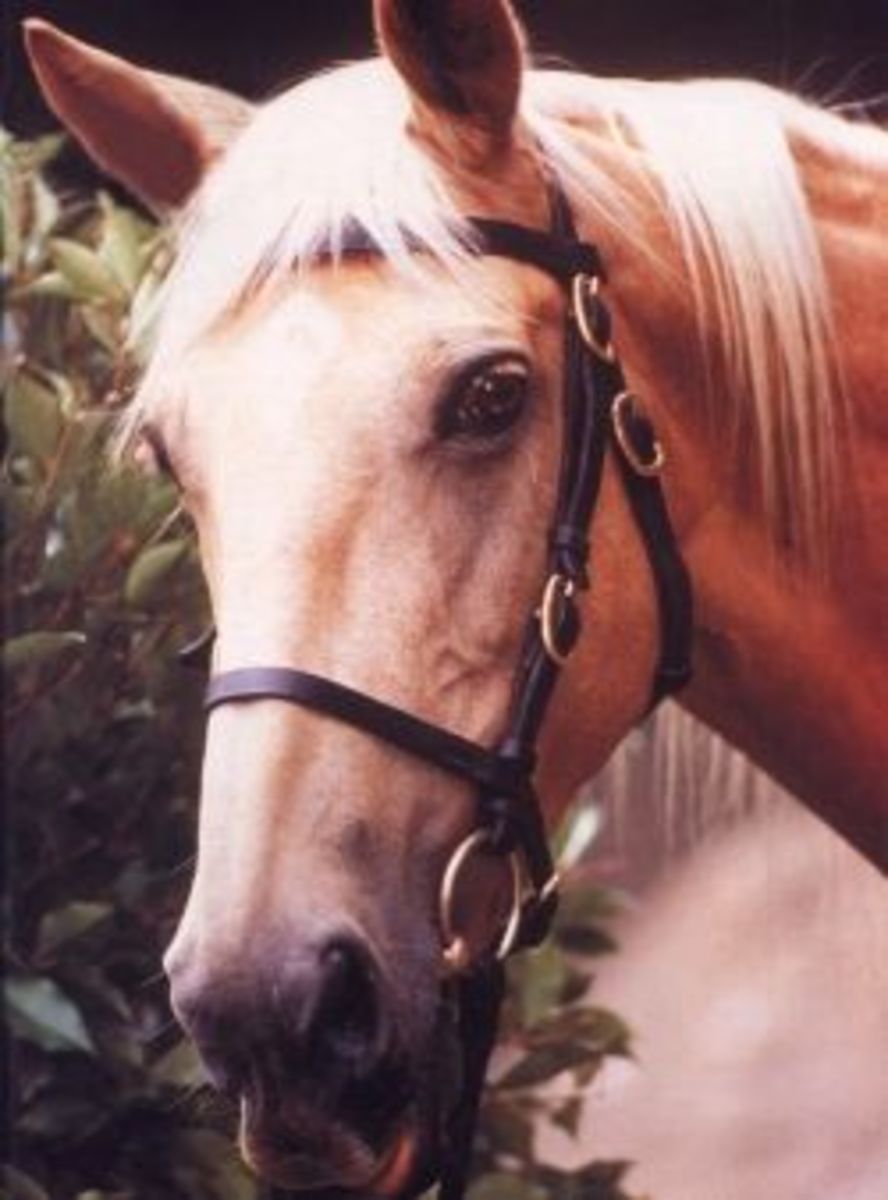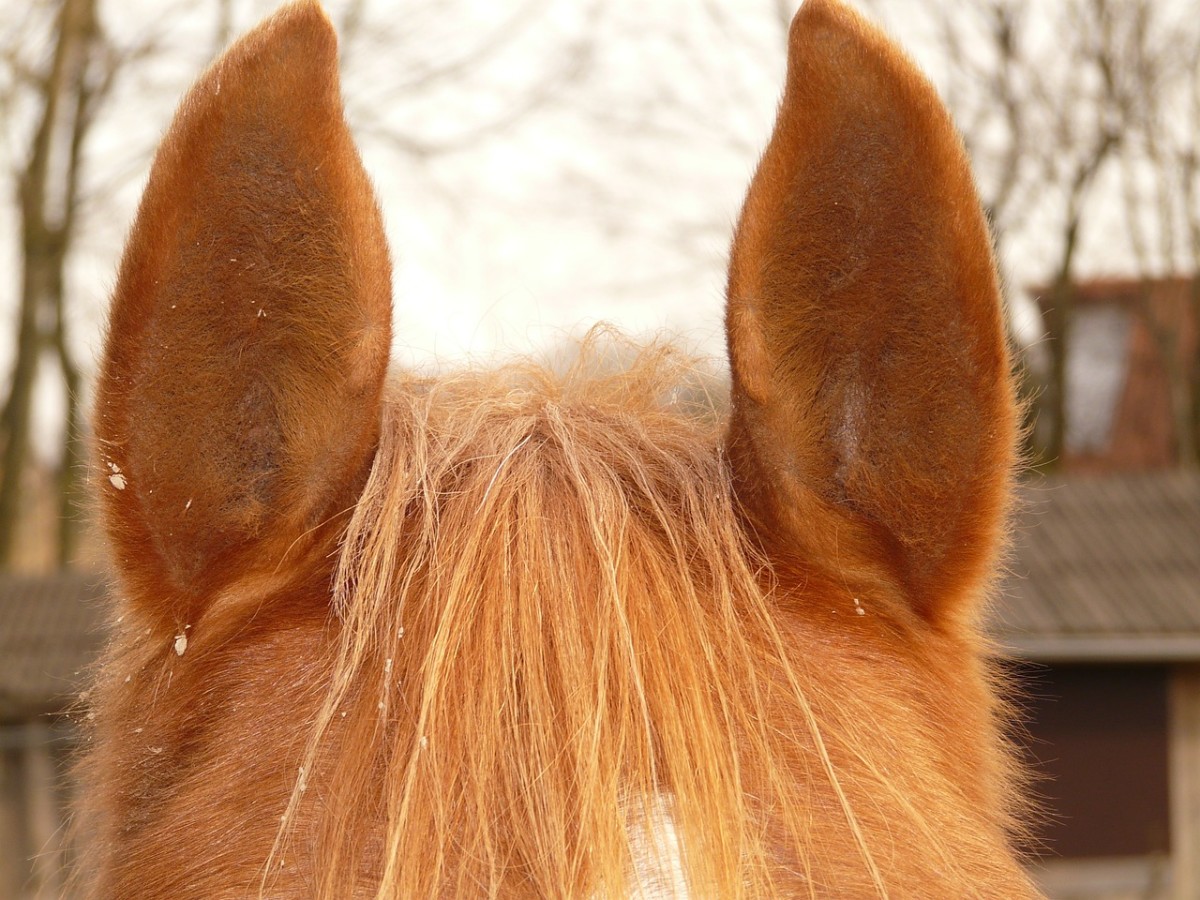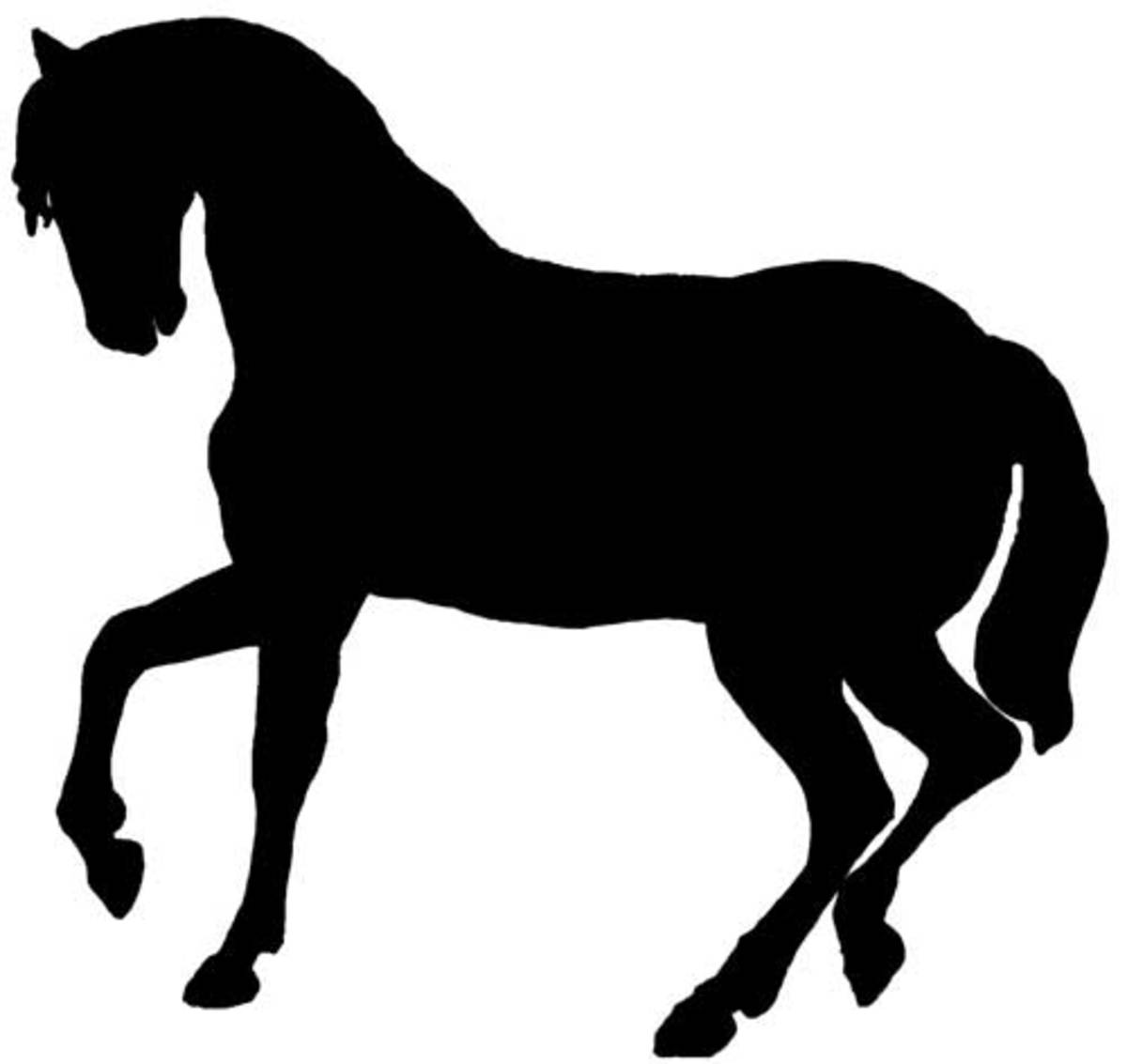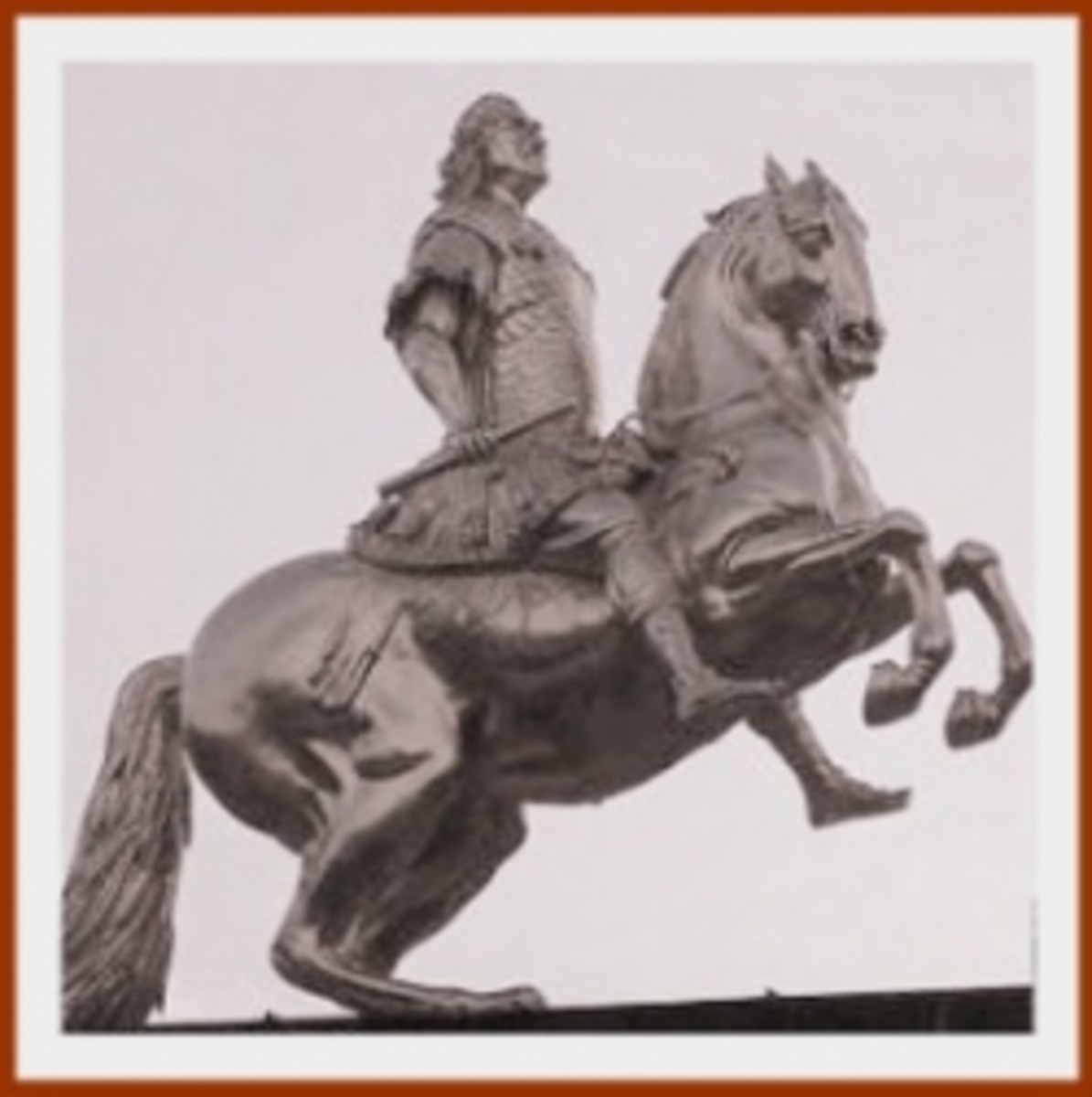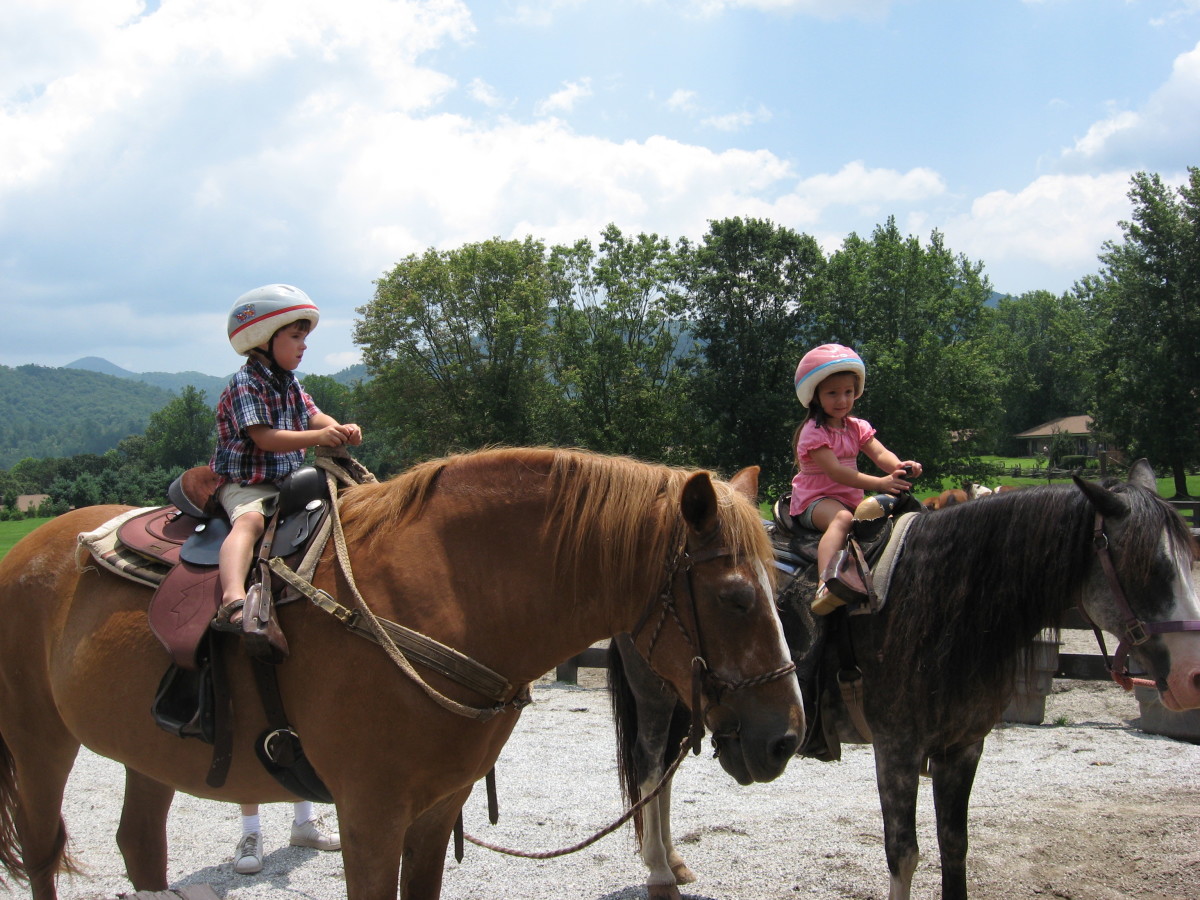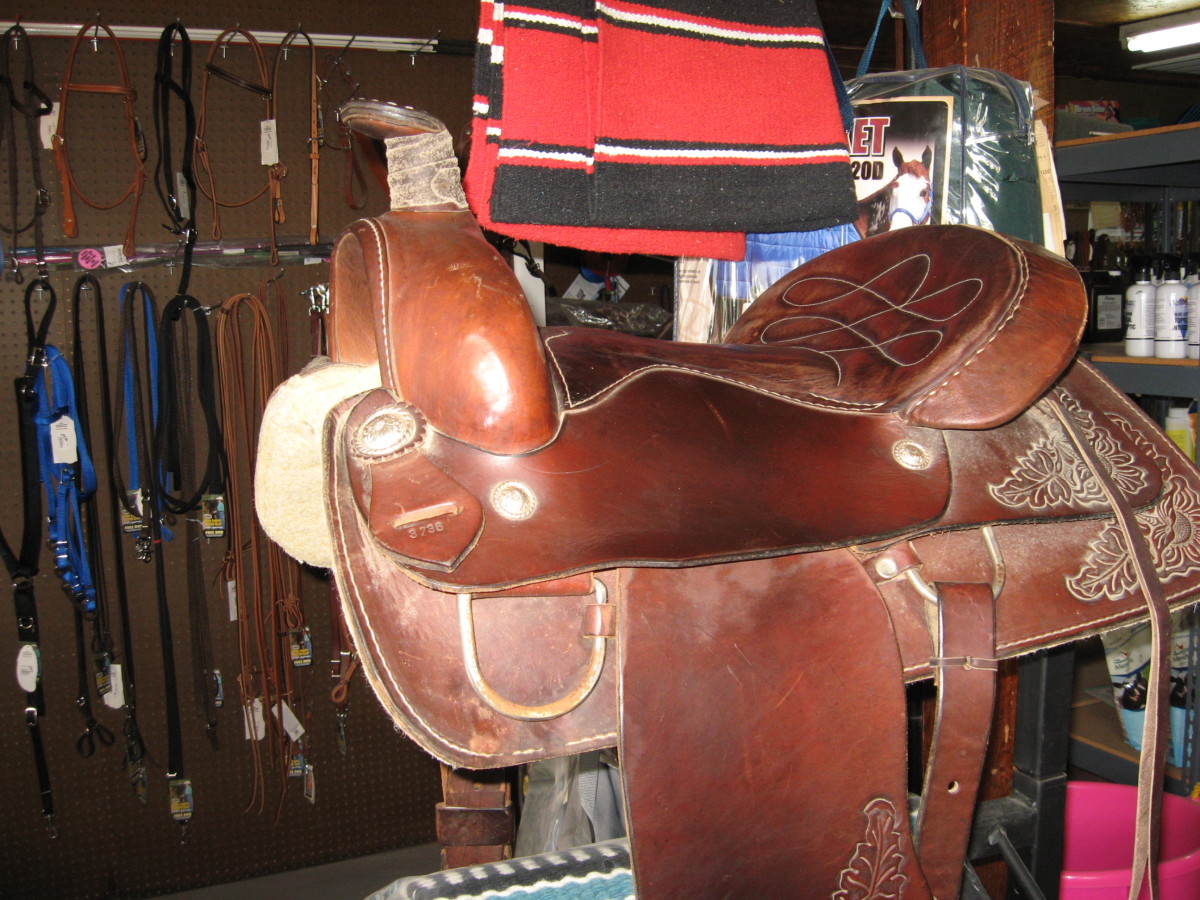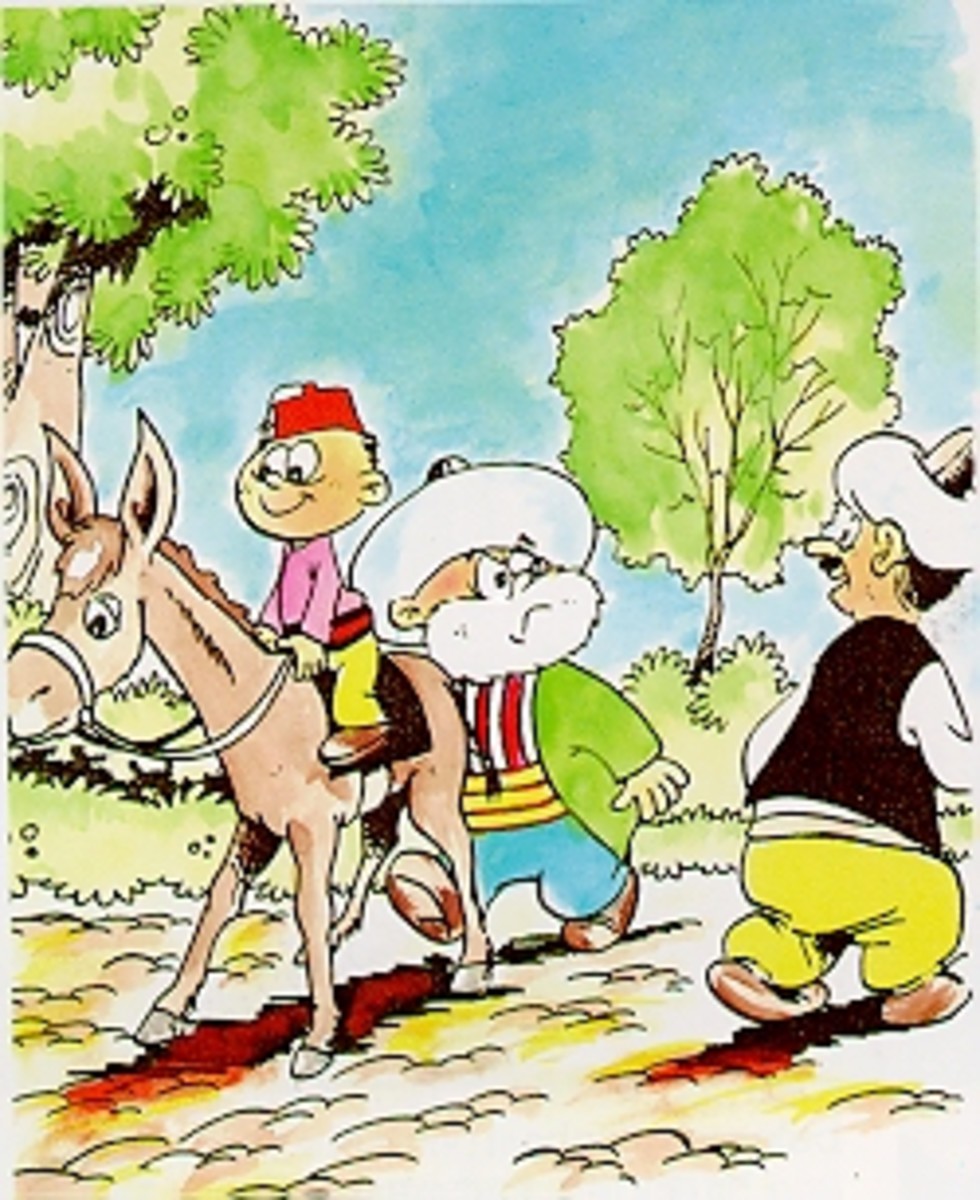Colic Quiz Answers
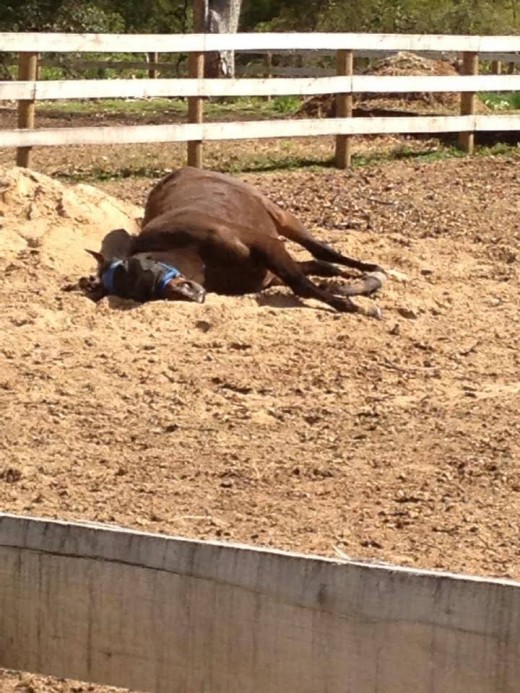
Question 1- A Classic Sign Of Colic Is What?
A classic sign of Colic is (B) rolling. A horse with colic you will often see rolling. As well as getting up and down. Sometimes kicking or biting at their belly. They will look as if they are doing everything they can to get comfortable but are not able to. A colicky horse will often appear restless.
Question 2-Is It Okay For A Colicky Horse To Lay Down?
The correct answer is Yes, for short periods of time if he isn't rolling (A). If your horse is obviously uncomfortable and is laying down calmly, laying down for short periods of time is okay. If the horse is kicking, or rolling violently while down, he should get up and walk around instead. If he is quiet and calm, laying down for short periods of time is okay. It is never a great idea for a horse to stay laying down for extended periods of time, especially while colicky because sometimes moving around(walking) helps get things moving again.
Question 3- You Should Let Your Horse Eat Grain and Hay If He Has Colic
The correct answer is (B) false. If your horse is showing signs of abdominal pain, without a rectal examination by a vet, there is no way to know exactly what is going on. That being said, in case there is an impaction or twisted bowel, we do not want to allow the horse to eat and exacerbate the problem even more
Question 4-How Do You Check Your Horses Hydration?
The correct answer is (A). To check hydration you should pinch some of the skin in the middle of your horse's neck. If he is properly hydrated, the skin will return to normal right away. If he is dehydrated, the skin will stay "tented" of pinched up for a few seconds before flattening out again. Dehydration is a common cause of colic. Especially in the winter months when it is cold and the horses are not drinking enough water. It is a common reason for impaction colic.
Question 5- You Should Give Your Horse Any Pain Medication That You Have On Hand
The correct answer is (B) false. Unless you have consulted at least over the phone with your vet you should not administer any pain medication. Why is this? The reason behind this, if your horses colic is more serious, a twisted bowel, for example, you don't want to make the situation seem milder by masking the pain. After you have talked to your vet, or your vet has come and examined your horse, the vet may recommend administering pain medication.
Question 6- If You Horse Is Showing Signs Of Colic You Should Leave Him In The Field
The correct answer to this is (B) False. If possible you want to keep your horse in a stall or at least a small paddock by himself. This is because you need to monitor if and how often he is passing manure. If he is with other horses, loose in the field you won't be able to monitor this.
Question 7-One Of The Best Thing You Can Do With A Colicky Horse is
The correct answer is (B) which is to keep him walking if possible. If your horse has gas colic, he is more likely to pass it if he is up and moving. If he has an impaction, keeping him moving will hopefully get things moving again through your horses gut. If your horse is in severe pain we want to try and walk them because when they are in pain and rolling or thrashing violently in the stall they could injure themselves easily. This also reduces the risk of them rolling and getting cast in the stall. Meaning that they rolled over into the wall with their legs in a position that they are unable to push themselves back over and upright.
Question 8- The Vet Will Often Give This Medication
The correct answer is (D) Banamine. Banamine can be given in an injectable form, squirted onto the tongue or it also comes in an oral paste form. Your vet will suggest the best method to administer it. Often times they will also administer a mild tranquilizer to help relax the horse's muscles, in hopes to allow gas to pass or an impaction to move through.
Question 9- Surgery Is An Expensive Option But It is Available
The correct answer is (A) true. A horse with a twisted gut or bad impaction may not be able to resolve the colic on their own in the usual ways. Meaning surgery would be the only option. Colic surgery is very costly, upwards of $7-10,000 and very hard on a horse. There would be many factors that would come into play when making a decision about colic surgery. Things like the horses, age, whether or not he is insured and the prognosis of successful recovery. If the horse is showing signs of shock, the prognosis probably isn't as good. Your vet should be able to discuss the probability of surgery having a good outcome or not
Question 10- If Your Horse Is Showing Signs Of Colic He needs To See A Vet Immediately
The correct answer to this one is (A), depends on the severity of the symptoms. You should contact your vet, explain the signs and symptoms that you see, and go from there. They may advise you just to continue monitoring the horse or they may say they need to come out right away. It never hurts to call. In some simple colic situations, with guidance from your vet over the phone, you can handle it just fine on your own.
Understanding Colic In Horses
How Did You Do?
So how did you do? Hopefully, if you didn't ace this quiz you at least now have a better understanding of colic and what to do about it!


